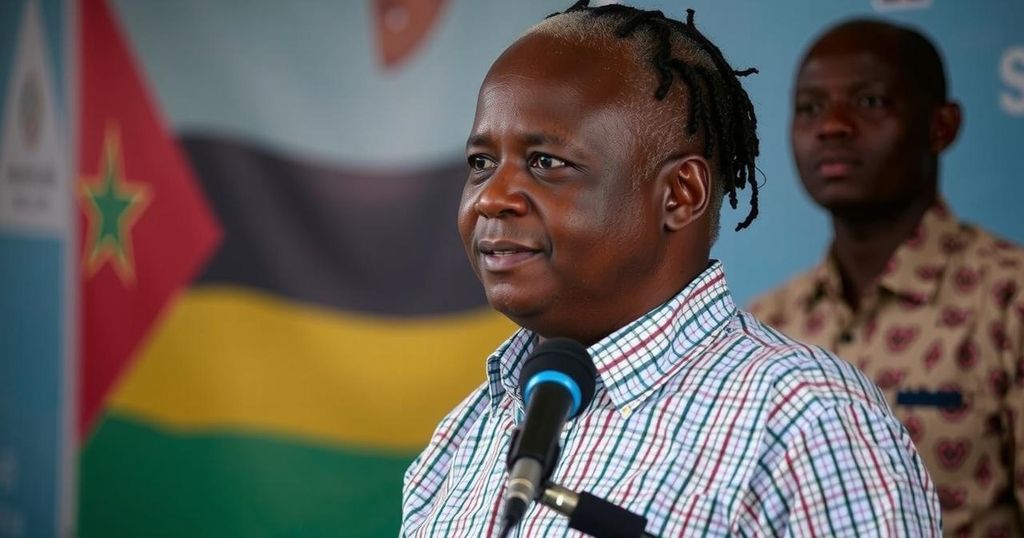Mozambique’s post-election violence has intensified, with a reported death toll rising to 151 since protests erupted after the October 9 elections. Following the confirmation of Daniel Chapo as winner, at least 21 deaths and 20 injuries occurred since Monday. The instability has been punctuated by accusations of vandalism among protesting groups.
Following the confirmation of Daniel Chapo as the victor of Mozambique’s presidential elections by the nation’s top court, escalating violence has unfolded across the country. Since Monday, at least 21 individuals have lost their lives, and over 20 have sustained injuries due to violent confrontations. The Interior Minister, Pascoal Ronda, reported that a total of 236 incidents of severe violence have been recorded, raising the overall death toll to 151 since the initiation of protests on October 21. These protests erupted after the electoral authority declared Chapo, representing the ruling Frelimo party, as the winner of the perceived contentious elections held on October 9.
In the aftermath of the Constitutional Council’s confirmation of Chapo’s election victory, which altered his winning percentage from 71% to 65%, supporters of the exiled opposition leader Venancio Miondlane took to the streets in protest. Authorities have reported accusations against these protesters for engaging in vandalism targeting police stations and various public institutions. Miondlane, currently in self-imposed exile, had forewarned citizens of “difficult days ahead” prior to the court’s ruling. This situation highlights the intense political tensions in Mozambique stemming from the disputed electoral process and the ongoing unrest among opposition supporters.
The recent electoral cycle in Mozambique has been marked by significant controversy and dissatisfaction regarding the legitimacy of the presidential election process. The pivotal announcement made by the electoral commission on October 9, declaring Daniel Chapo of Frelimo as the president, set off widespread protests and unrest throughout the nation. The scrutiny of electoral practices in Mozambique has historically led to accusations of rule manipulation and violence, and the current unrest serves as a stark reflection of the unresolved issues within the country’s political system.
In summary, the violence in Mozambique following the affirmation of Daniel Chapo as president has escalated dramatically, resulting in a tragic death toll of 151 individuals since late October. The protests, fueled by dissatisfaction with the electoral process, have led to serious unrest and unrest across the nation. The acknowledgment of the election results by the Constitutional Council has not quelled the ongoing turmoil, suggesting that the political landscape in Mozambique remains volatile and tense.
Original Source: www.aa.com.tr






